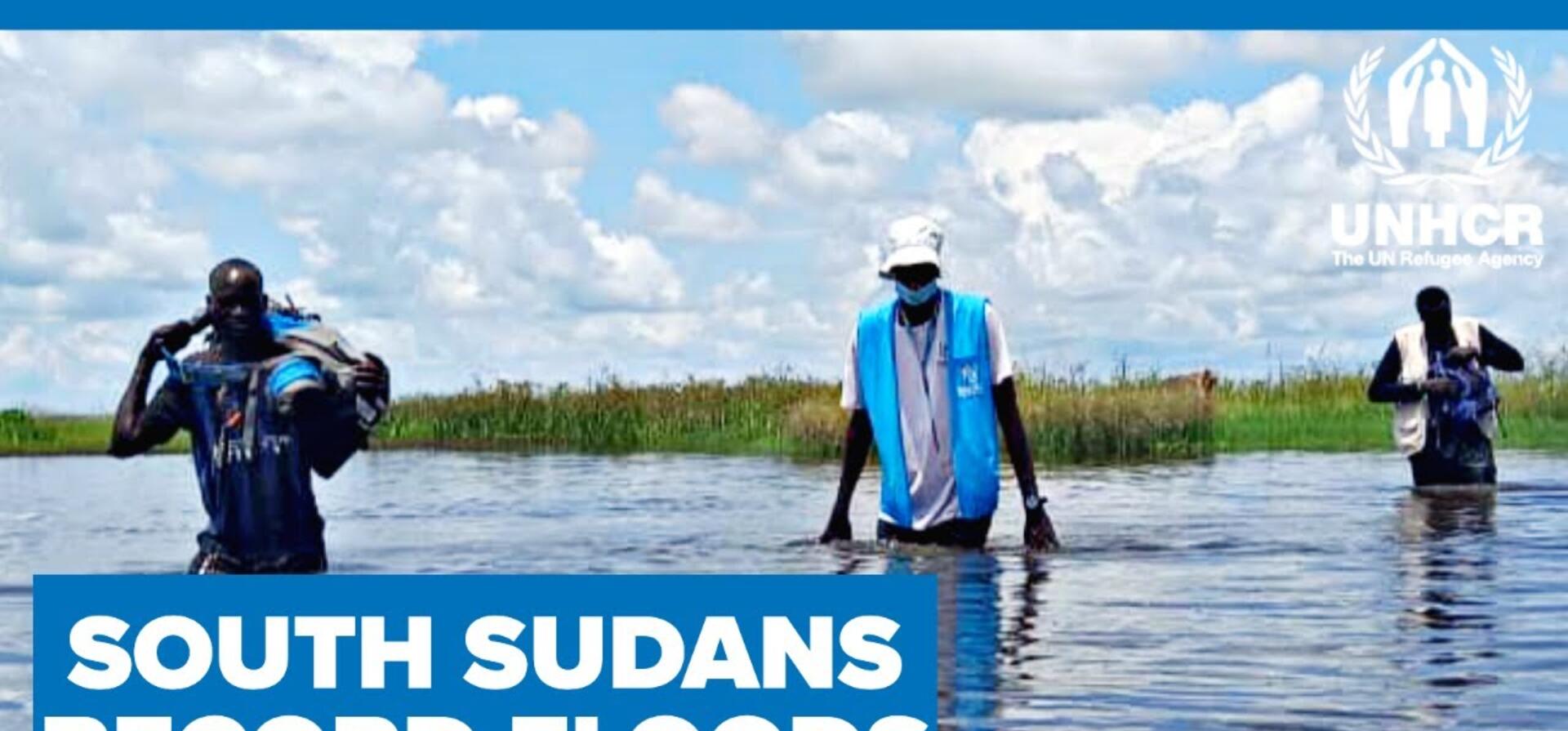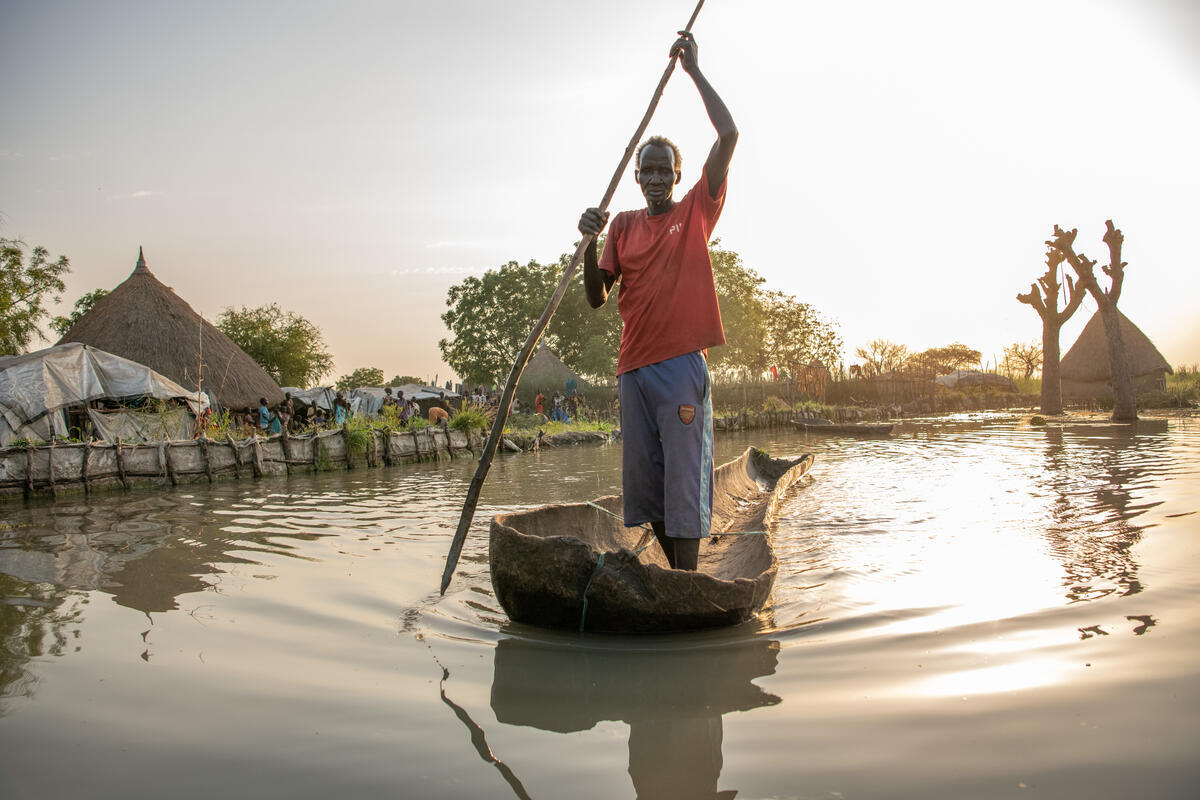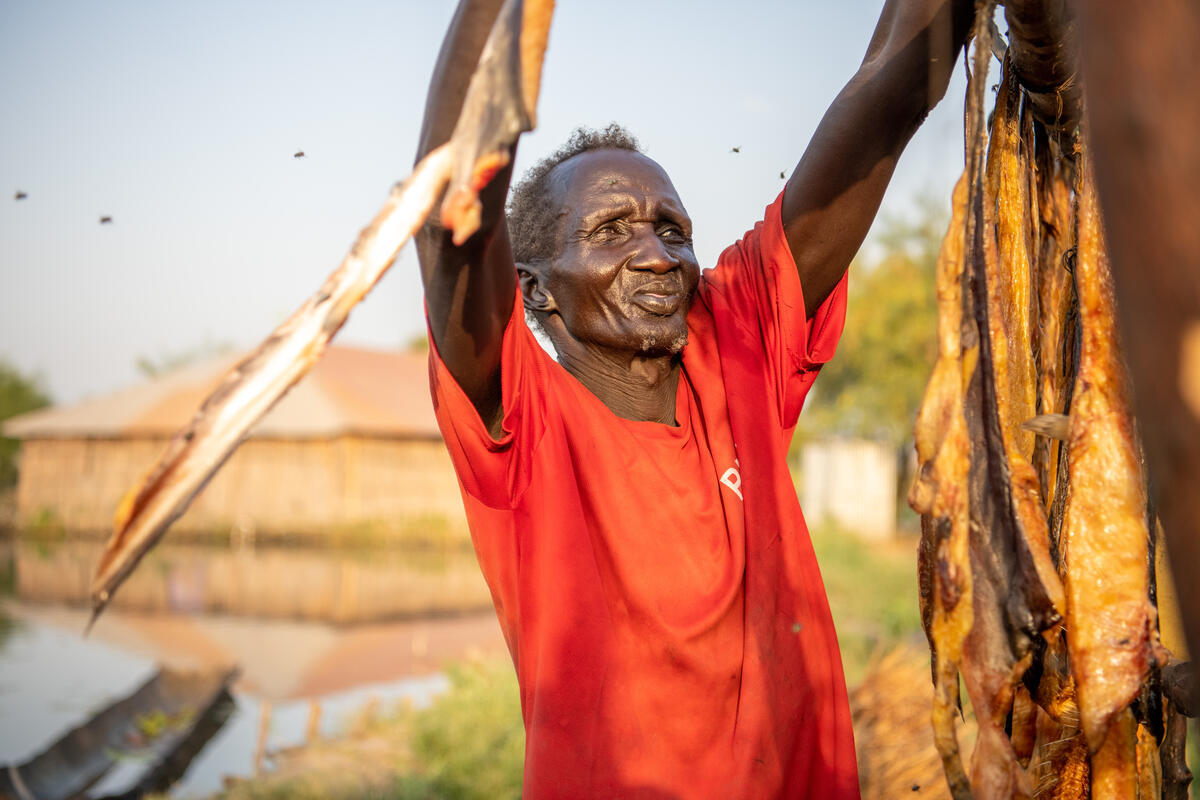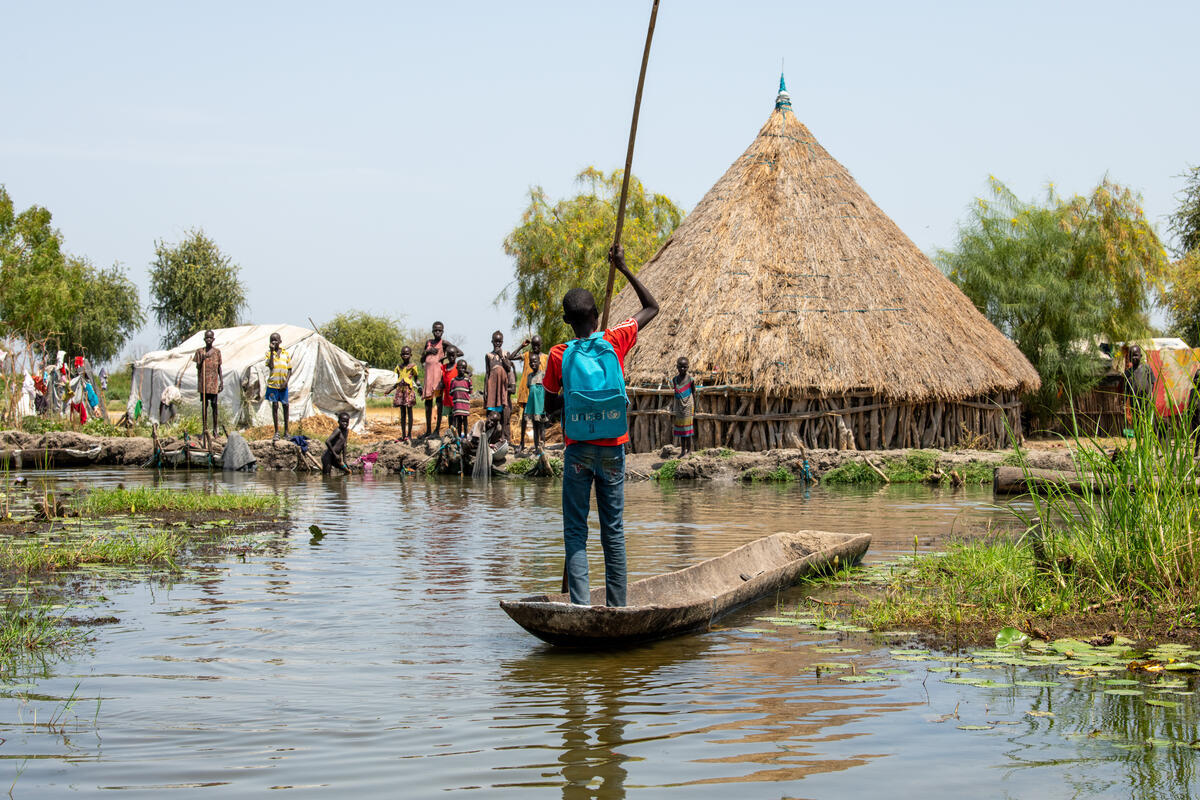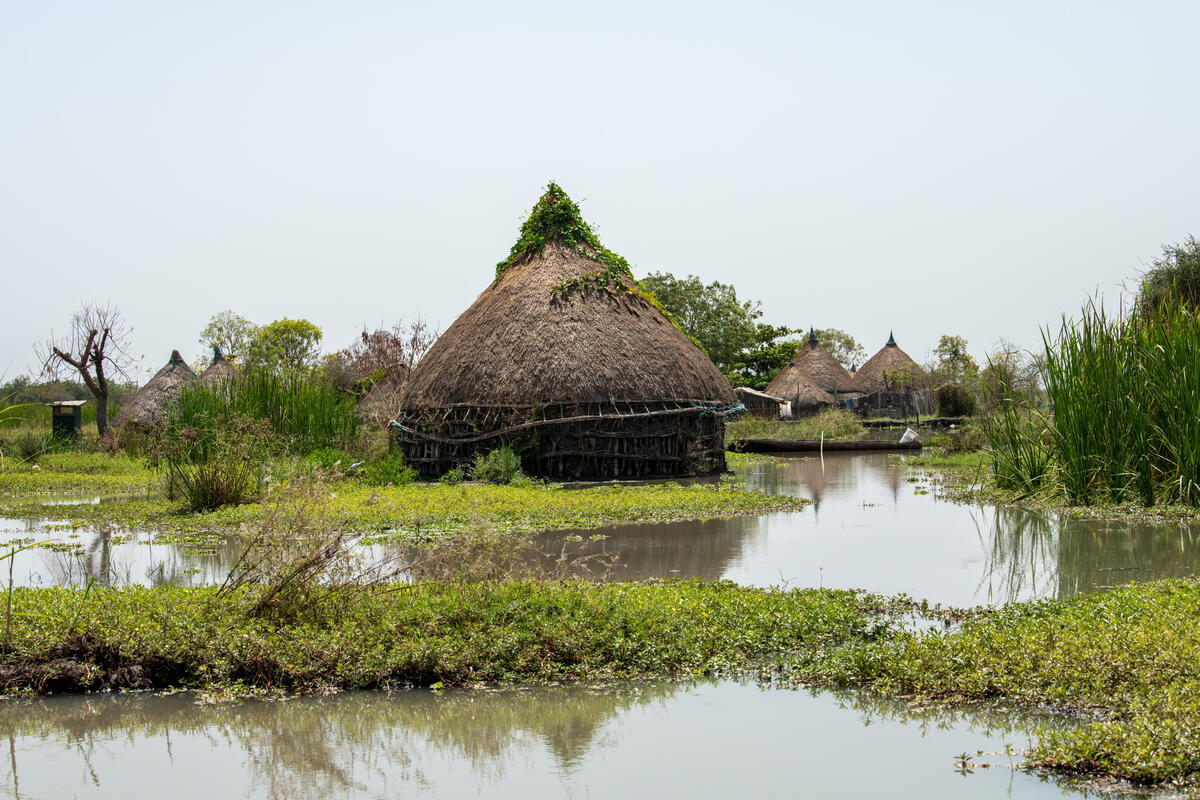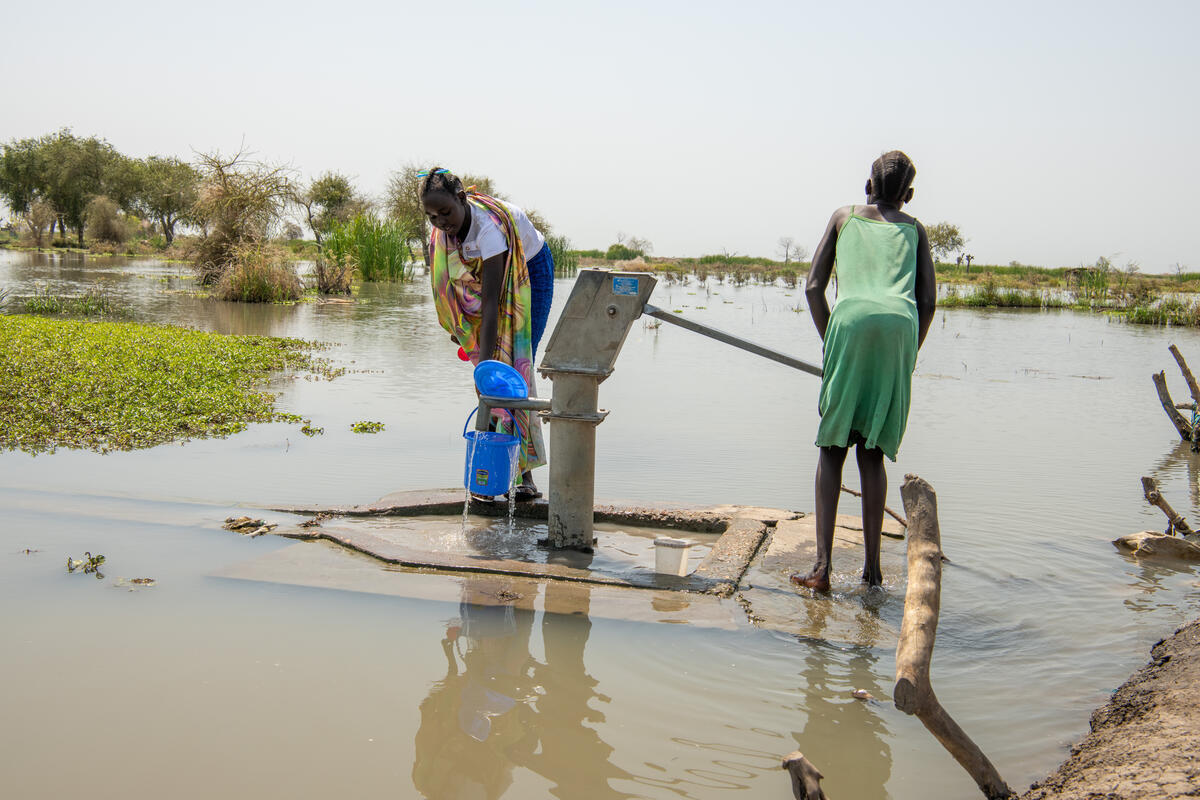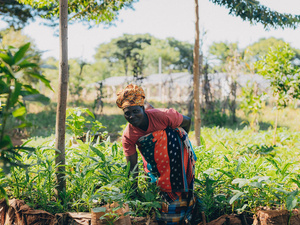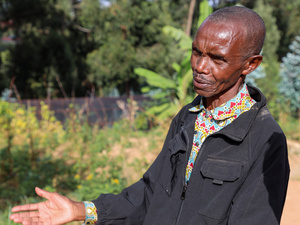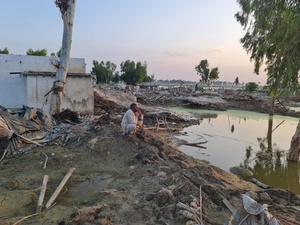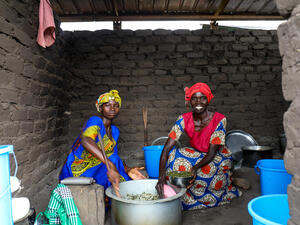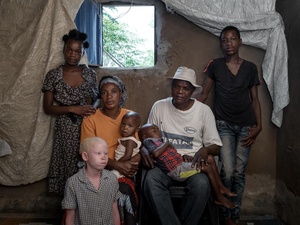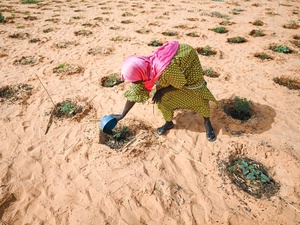South Sudanese battle record floods amid rapidly changing climate
At first light, 70-year-old Cholul Jock slips into murky, chest-deep water and tours the fragile earthen dike ringing the two huts that are home to her family of seven.
She tucks plastic sheets into the holes and tamps mud down into the seeping gaps in a daily struggle to keep the floodwaters at bay.
“It’s the only way I can prevent this water from entering my compound,” she explains. “And if the dike bursts, the water could sweep us all away – that’s my fear.”
The mother of 18 children – three surviving – is among thousands of residents of Fangak County in South Sudan’s eastern Jonglei state battling the worst floods in living memory.
Record rainfall in the past three years in the Upper Nile region, and flooding from upstream in other countries, have drowned the lands where they once raised goats and cultivated sorghum and ground nuts, with little chance for flood waters to recede between rainy seasons.
Flooded out twice, Jock has not farmed for the past two years. Forced to relocate, her family have retreated behind an 80-metre flood barrier with their few goats.
“We have been fighting on two fronts for the last two years: hunger and [keeping the] water on the other side. We go to sleep hungry every day because we have no food,” she says.
According to the UN Office for Humanitarian Affairs (OCHA), more than 835,000 people like Jock have been impacted by the flooding in South Sudan, an already fragile country roiled by conflicts since it gained independence from Sudan in 2011.
The floods have badly affected 33 of the landlocked nation’s 79 counties, making life ever-more precarious for those affected.
“Sometimes I go fishing, but on a busy day like today, I will only focus on repairing the dike,” says Jock, weighed down by tiredness. “The only challenge here is that this work needs energy: when people don’t eat well, they also can’t work.”
Climate change is driving more frequent and intense weather and climate extremes such as cyclones, floods and droughts, negatively impacting agricultural production, food and water resources, and people’s livelihoods. These effects can lead to conflict and humanitarian disasters, and are increasingly contributing to displacement in different regions of the world.
Its impacts are disproportionately felt in poorer countries like South Sudan that contribute least to carbon emissions. While the wetland region in Jonglei has always been prone to heavy rains and flooding, residents say the patterns shifted sharply four years ago.
"This kind of flood is different."
“In those days, even during heavy rains people could still cultivate their farms and grow food. But this kind of flood is different,” said James Kai, a local resident who farmed the land for most of his 80 years.
Kai has been uprooted four times in the past two years. He now shelters in his brother’s dike-ringed compound in Old Fangak with his four wives and some of their 17 children, battling every day to keep the waters from swamping the earthen berm.
His family receive World Food Programme rations that do not cover their needs. To make up their diet he weaves fishing nets to trap mudfish and tilapia, while his wives forage from a canoe for waterlilies and wild fruits.
Where once they took their crops to market by dirt road, these are now flooded. Boat trips to and from the nearest market cost 200 to 400 South Sudanese Pounds (US$0.45 to US$0.90) – a sum few can afford.
Even a small airstrip nearby is under water, leaving the community largely cut off from the rest of the country, with transport limited to canoes and motorboats. Primary health-care services are non-existent apart from in Old Fangak, which has the only functioning health facility in the county, operated by Médecins Sans Frontières.
There is currently no food assistance for schoolchildren, and families have to pay for local canoes to ferry their children to class, where once they walked – a journey with no cost.
“We have to pay for the canoes, and we don’t have enough money to send for instance 10 children to school,” Kai explains. “When there is no money, it means the children will have to stay home for that day or week,” he adds.
Hunger and flooding have driven many families to abandon Old Fangak and head to Malakal and other towns in the region.
Those that remain have banded together to build and repair the dikes ringing their homes. But with no return to normal between rainy seasons – and another looming in May – their former resillience has been steadily eroded to the point where they now face an imminent threat to their survival.
Kai says the communities need water pumps to bail out their marooned compounds ahead of the rains. Heavy machinery is also needed to help make sturdy flood barriers and build mounds to keep their livestock above water.
“We have not been defeated by any insurgency, so this flood should not make us give up,” he asserts. “We should fight it to the end and remain strong.”
UNHCR, the UN Refugee Agency, has provided plastic sheets, hoes, spades and sandbags to help strengthen their flood defenses, and is supporting families displaced to Malakal and other towns by flooding. However, humanitarian access is limited with roads flooded or washed away and airfields under water.
In line with its push for more forward-looking investments and operational preparedness in regions exposed to climate risks, the agency is also calling on the government and the international and humanitarian communities to step up assistance to those impacted by the climate emergency ahead of the coming rains.
"We tried our best, but the water keeps coming."
“South Sudan is the youngest country in the world, impacted not only by conflict, but the challenges of climate change,” Andrew Harper, UNHCR’s Special Advisor on Climate Change, told reporters at a news conference in South Sudan’s capital, Juba, after touring flood-hit areas in March.
“There’s very strong community spirit that is adapting in the face of these changes, they are doing everything they can to protect these communities, their farms and their livestock, but they need support,” he said.
“I don’t think it is fair that you have elderly women forced to build up the defenses of their villages with their bare hands, not when there’s so many resources out there,” he added.
Harper said assistance should support the communities’ own efforts to prepare for the upcoming wet season and develop responses to mitigate and adapt to climate change in the medium- to long-term.
For Jock, ground down by the unequal struggle against the water, that help cannot come soon enough.
"We are tired and suffering. This water is too much," she pleads. "We tried our best, but the water keeps coming.”
Additional reporting by Tim Gaynor in Juba, South Sudan


